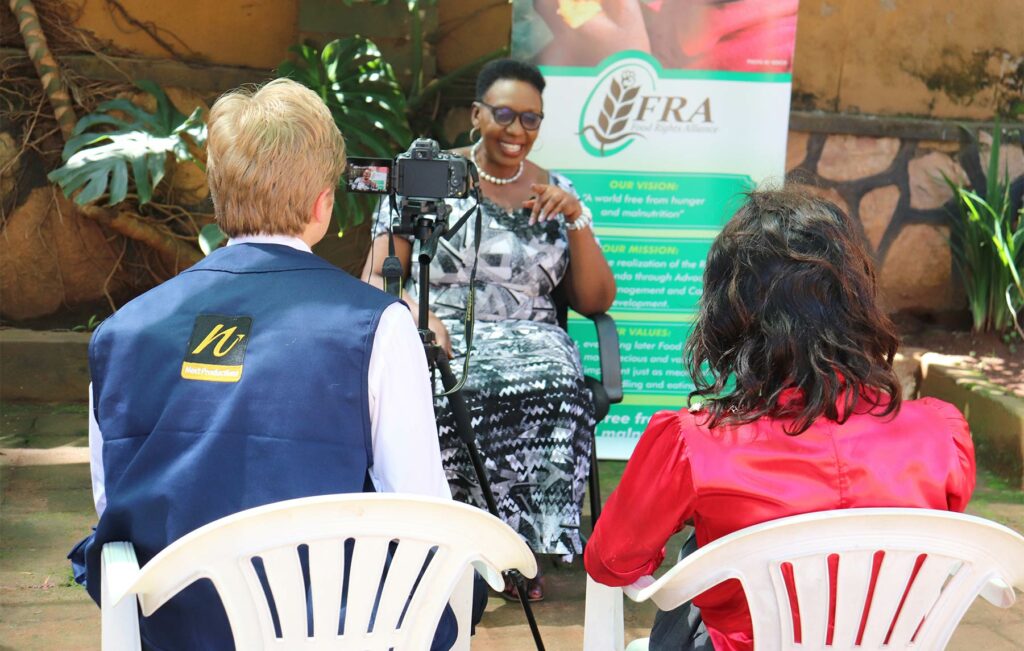
In a recent interview with NEXT productions at Food Rights Alliance Secretariat, Agnes Kirabo executive director (Food Rights Alliance) a food and agriculture policy specialist advocated for the incorporation of millet into our modern food systems. Millet is a crop that has been demonized and pushed to the brink of extinction due to market forces and the prioritization of a few grains. However, the specialist argues that millet is crucial to our nutrition, climate, and food security challenges, as well as our social stability. That is to say, Millet is important as a staple food crop, millet contributes greatly to the incomes of rural households, particularly women.
It is brewed into local beer for sale and is sold directly as grain in local markets where there is ready demand. Furthermore, millet plays a major role in providing for the dietary needs of the rural people who constitute more than 80% of the Ugandan population. It is a major preventative food against malnutrition, owing to its high content of essential amino acids, namely, tryptophan, cystine, methionine, and total aromatic amino acids (phenylamine and trysone).
Finger millet is a fairly resilient crop; it is drought tolerant and its grain has an extended shelf life of several years without significant damage by storage pests. Millet, therefore, offers great food security opportunities for the country. (Source: http://www.bioline.org.br/request?cs99048)
Millet is a crop that is deeply rooted in African culture and tradition and has a wide range of uses and benefits. It is a resilient and inclusive crop that is not as heavy feeding as other grains that have been introduced into the food system. It is also a short season crop with high value, making it an ideal choice for a changing climate. Millet is the answer to various challenges we face today, such as anemia and food insecurity.
Ms Agnes Kirabo emphasized the importance of understanding that our food connects us to nature and to each other. Millet has the ability to unify and connect people, and this is what we need in modern society. As we face changes and challenges in our weather patterns and food systems, millet can push back and fight back. It can open the gates to a more resilient and inclusive food system, one that reflects the values and norms of traditional African societies.
She also criticized market forces and argues that they have failed not just the African food system but the world as a whole. Agriculture and our food system are dependent on the mood of God and are a natural system that we must preserve and protect.
To create domestic and global demand and to provide nutritional food to the people, Government of India proposed to the United Nations to declare 2023 as International Year of Millets. This recognition is an important step towards decolonizing our food systems and prioritizing practices, norms, and values that are based on resilience, nutrition, and social unity. By incorporating millet into our modern food system, we can celebrate our identity and who we are as a people. Millet is not just a crop, but a symbol of our culture, tradition, and connection to nature.
By Esther Namirimu
PO Advocacy and Communications
